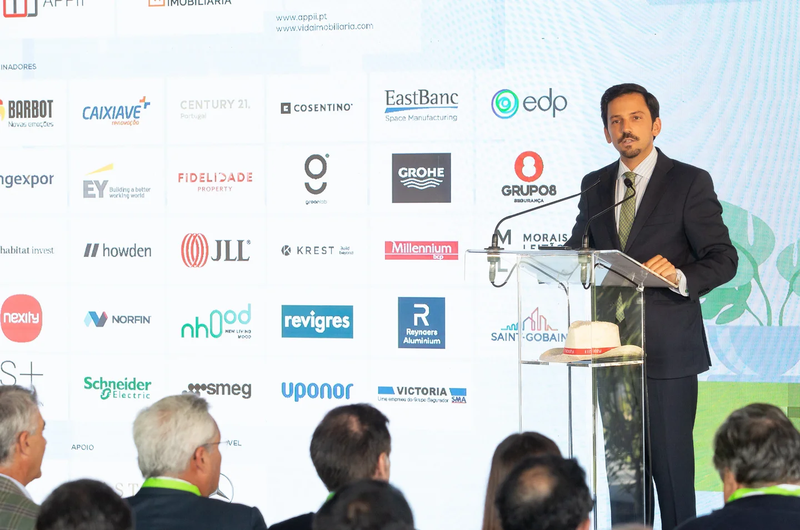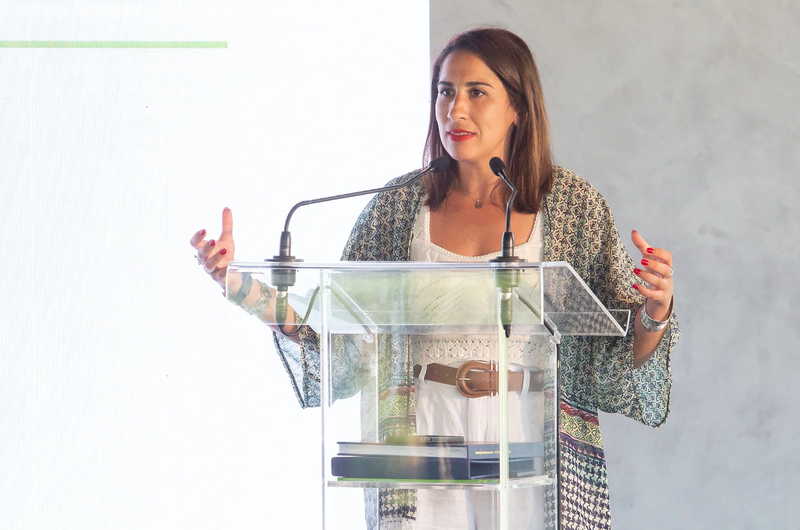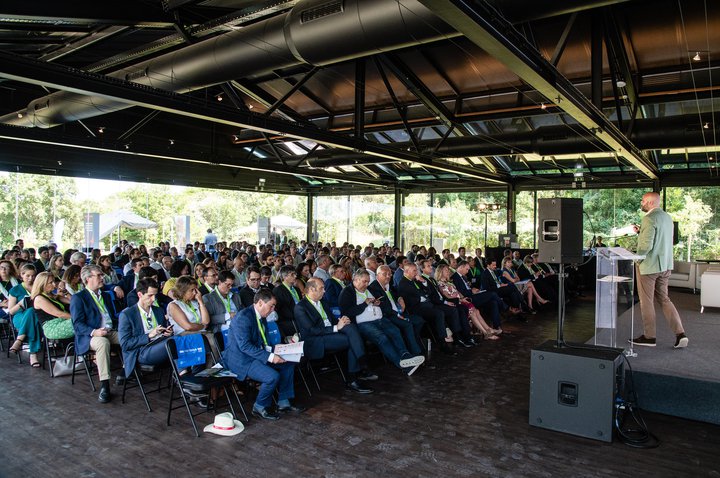Lisbon once again hosted the Conference on Property Development (COPIP), this Thursday, June 22nd. The organization of APPII - Portuguese Association of Real Estate Promoters and Investors and Vida Imobiliária (part of Grupo Iberinmo), celebrated the 4th edition of the event.
The energy crisis, the increase of raw materials and labour costs, the galloping growth of interest rates and the lower purchasing power of the Portuguese have made 2023 " one of the most challenging years of the last decade for the real estate sector", points out Hugo Santos Ferreira, APPII's President, when speaking at the opening of COPIP.
"Less housing" package
The "Mais habitação" (More housing) programme "paralysed the entire sector: it scared away investors, frightened property owners and irritated the population. It was quickly dubbed the "less housing" package," notes Hugo Santos Ferreira, adding that the measures announced by the Executive caused "adverse effects in terms of credibility and confidence on the part of those who invest and those who own property".
The President of the APPII emphasises that the city builders "are determined to help the country build more housing, which the Portuguese can afford", however "we are waiting for the green light to be given so that we can get down to work". Hugo Santos Ferreira congratulates the sector that, "united and committed", managed to "put under discussion, manage the agenda and lead in public opinion a serious and balanced debate on housing, licensing and problems that we have been demanding for so long".

Hugo Santos Ferreira, APPII's President, on his opening speech
He recalls that, currently, "we have a proposal of urban simplex under discussion in the Portuguese Parliament. We managed to make the Portuguese people understand that, in turn, they started to demand from our leaders that solving the delay, the corruption, the bureaucracy, the complexity of municipal licensing is also for us to have a more competitive country, where houses can be more numerous and cheaper".
However, despite these advances, "let us not deceive ourselves", warns Hugo Santos Ferreira, as "there is still a lot of work to do in favour and in defence of our market". The APPII President also spoke about the Gold Visa program, an "important program for the country", being extremely important "to place, once and for all, this program in favour of the construction of affordable housing".
Hugo Santos Ferreira emphasized that "we have always defended that this is a programme to be maintained: in the creation of jobs, in the creation of business activities, in the acquisition of investment funds and risk capital". He also guaranteed that "we can expect there to be political will from the main political parties to extend this programme to affordable housing and residences" and that "the main political parties are in agreement about the maintenance of this programme. We can and must continue with it in the next decade".
The president of the Portuguese Association of Real Estate Developers and Investors stresses that "the time has come for us, in partnership with the private sector, to create an effective model for public-private partnerships. I can testify that our leaders have been listening to the concerns of real estate promoters and investors". It is intended that an "effective public-private collaboration programme comes out of this legislative process, which allows us to really go for it. It's time we put together a program that works. We will certainly put together a good programme of a fruitful relationship between the public and the private".
Giving stability to the tenancy law and lowering the tax burden
It is fundamental to "give stability and predictability to the law on leases", to "lower the tax burden" on the construction of houses, to reduce the "costs of construction raw materials and labour", as well as to lower the "VAT rate on the purchase of the first house", which in Spain is 10%. Hugo Santos Ferreira reiterates that "we have an ecosystem of urban renting and property that persists in being rotten". The APPII's president also warns that it is crucial to "reduce and simplify licensing" which "is the biggest bottleneck in the supply of cheap homes in Portugal".
The measures "may not be sufficient or effective, if we don't solve all these issues once and for all", Hugo Santos Ferreira infers, adding that "real estate doesn't lose, Portugal loses and the Portuguese, who still don't have houses to live in at affordable costs". In this sense, "we, developers, want to help, count on us", he adds.

Marina Gonçalves, Minister of Housing for Portugal
"The time has come for us to realise the work that has been done"
Marina Gonçalves, Minister of Housing, emphasizes that they can "count on us to continue to strengthen this work and this dialogue that has been very important to achieve a good result. We have evolved a lot, and today's debate was really to ensure that we are part of a national emergency that is the access to housing". In this sense, "we have more work to do" pointing to the "issue of rents, which has not yet been raised in the debate on the specifics, it is not yet the time, but I understand the concern".
"This must be the year to approve the legislation to be implemented on the ground in 2024", says the minister, reinforcing that "we can effectively be partners in the implementation of this fundamental right to housing", since "we need to implement all this and all of you are fundamental for that".
Carolina Roca, president of ASPRIMA, closed the IV Conference of Real Estate Promotion, concluding that "we are almost the same, we have the same problems throughout the territory of Portugal and Spain", agreeing that one of the problems is the under-production of housing: "we are at the tail end of Europe in this, going through all the problems of licensing, of financing".

The event ended with a Grand' Cocktail, where the Exclusive Guide for Real Estate Developers and Investors was presented.
